Ah, Florida – where the sun kisses the land, and the gentle rustle of palm trees complements the rhythmic dance of ocean waves. For many, the dream of relocating to this tropical paradise remains just that, a dream. But with the right guidance, that dream can swiftly turn into a pleasant reality. Whether you’re captivated by the vibrant culture of Miami, the fairytale magic of Orlando, the serene beaches of Tampa, or the historic charm of Jacksonville, Florida promises a unique blend of adventure and relaxation, tradition and modernity.
Like any significant transition, moving to a new place comes with its challenges, and Florida is no exception. With this guide, we aim to simplify this process, equipping you with all the knowledge and insights you’ll need to navigate the initial complexities. By the end of my easy 7-step guide, you’ll be well-prepared and even more excited to embrace the Florida lifestyle, knowing what to expect, how to prepare, and how to make the most of the opportunities that await in the Sunshine State. Welcome aboard, and let’s set the course for your Floridian experience!
- Step 1: Determining Your Priorities
- Step 2: Set Your Foundation
- Step 3: Packing and Moving
- Step 4: Establishing Your Official Residency
- Step 5: Adapt To Our Unique Climate
- Step 6: Embrace the Lifestyle
- Step 7: Staying Alert
- You're Now A Floridian!
Step 1: Determining Your Priorities
Florida offers something for everyone with its diverse landscapes, cultures, and lifestyles. To ensure your move aligns with your dreams, it’s vital to first define your priorities. Let’s break down the process.
Lifestyle Desires
Urban Vibes: Consider cities like Miami, Tampa, or Orlando if you thrive in a dynamic environment. These spots offer nightlife, diverse cuisine, and cultural events.
Beachside Living: For those dreaming of daily sunsets on the horizon, locations like Naples, Sarasota, or the Panhandle’s Emerald Coast might be your paradise.
Suburban Comfort: Families or those seeking a balance between city perks and serene living might enjoy Lakewood Ranch or the outskirts of Jacksonville.
Job Market and Opportunities
Florida has jobs in just about every sector known to man. You’re going to want to ensure your professional field is thriving in your chosen location. Check online employment websites, such as Glassdoor or Indeed, when searching for a home. Generally, the major cities each have their own specific merits.
Technology & Innovation: Orlando’s tech hub or the Miami start-up scene might be enticing for tech professionals.
Healthcare: Tampa Bay and Jacksonville boast reputable healthcare institutions for medical practitioners.
Entertainment & Tourism: Central Florida, with its theme parks and resorts, offers ample opportunities for those in the hospitality sector.
Recreational Activites
Florida is known for its year-round warm weather and plentiful ponds, lakes, and rivers, which makes it ideal for all kinds of outdoor activities! With four major urban areas, Florida also has a strong metropolitan reputation for
Outdoor Adventures: Nature lovers might lean towards locations close to the Everglades, the springs near Gainesville, or the diving spots in the Keys, but pretty much any city in Florida is strongly connected to the natural world.
Cultural Pursuits: Art enthusiasts might be drawn to Miami’s Design District or St. Petersburg’s admirable art community. Sarasota, part of Tampa’s suburbs, is also known for the arts with the Ringling Museum of Art, a collection of arts whose medium is not limited to canvas.
Budget Concerns
While not the funnest thing to consider, budget is a key part of any move. You can rest easy knowing that, no matter your budget, Florida will have a place for you.
Affordable Living: Cities like Pensacola or Palatka might offer more for your money regarding property sizes and costs.
Luxury Living: If budget isn’t a constraint, the upscale neighborhoods of Miami Beach, Boca Raton, or Naples might catch your eye. These neighborhoods offer everything that money can buy.
At A Glance: Regional Highlights
Once you’ve determined what is most important to you, you’ll need to determine which area works best for you. Below is a list of the five defining areas of Florida, as well as their distinct advantages. If you’d like to know even more, click on the bolded title to be taken to my post about each city.
Miami: The iconic Miami Beach offers beautiful coastlines with a blend of relaxation and entertainment. When the sun goes down, you can experience Miami’s iconic nightlife. Featuring everything from rooftop bars to world-class clubs, you won’t be disappointed. With a strong Latin American influence, Miami is a melting pot of cultures, evident in its festivals, cuisine, and neighborhoods. The art scene is especially strong, featuring the Wynwood Walls, Art Basel event, and Design District.
Orlando: Orlando is known for it’s plethora of theme parks and extremely strong tourism economy, with Disney World, Universal Studios, and Sea World all calling the city home. Orlando does not limit itself to just tourism; the city also has a strong and growing tech sector downtown and in the Lake Nona area. While all cities in Florida are known for their natural beauty, Orlando is particularly connected to the land, with some of the most iconic natural formations located close by.
Tampa: Tampa is the major city on the sunset coast. Based on the gulf coast, it is is known for it’s low key vibe and lush suburbs. Culture is one of Tampa’s best selling points, featuring the lively arts scene of St. Petersburg, the historic Ybor City, and numerous art festivals. Additionally, Tampa has many educational institutions for all kinds of students.
Jacksonville: The largest city in Florida by land area, the Jacksonville area provides a nice mix of urban, suburban, and even slightly rural lifestyles. With a growing downtown area and plenty of natural attractions, Jacksonville offers everything one could desire.
The Panhandle: Mostly comprised of a more rural landscape, not unlike that of the Carolinas or Georgia, the panhandle region of Florida offers plenty of wide open land for people who don’t want to live right next to their neighbors. There’s plenty of historical charm to be found here as well, with cities like Pensecola and the capital, Tallahassee, boasting rich histories and well-preserved historic districts.
Paving the Way to Your Dream Home
Determining your priorities isn’t just about desires; it’s a reflective journey. As you take time to understand what matters most, you’ll be better equipped to find your perfect spot in the vast, diverse tapestry that is Florida.
Step 2: Set Your Foundation
Now that you know what you want, and have decided on an area to move to, it’s time to really get serious and start looking for places to live.
Dip Your Toes: Consider Renting
As someone who moved to Florida from out of state (the locals lovingly refer to us as “Transplants”), I highly recommend that you consider renting first if you are not dead-set on the area. Familiarizing yourself with the locale by living there for several months can provide invaluable insight before making the larger commitment to purchase. You’ll get to intimately know the dynamics of the city, such as:
Local Amenities: You’ll discover the parks, shopping centers, schools, and dining options that will become part of your daily life.
Neighborhood Dynamics: You’ll experience the community in ways not felt through the computer; you’ll learn the community vibe, experience local events, and even the morning commute.
Adjustment to Florida: Renting before you buy will expose you to our unique climate. Living in Florida can be a massive change, and renting will help you experience our summers and winters.
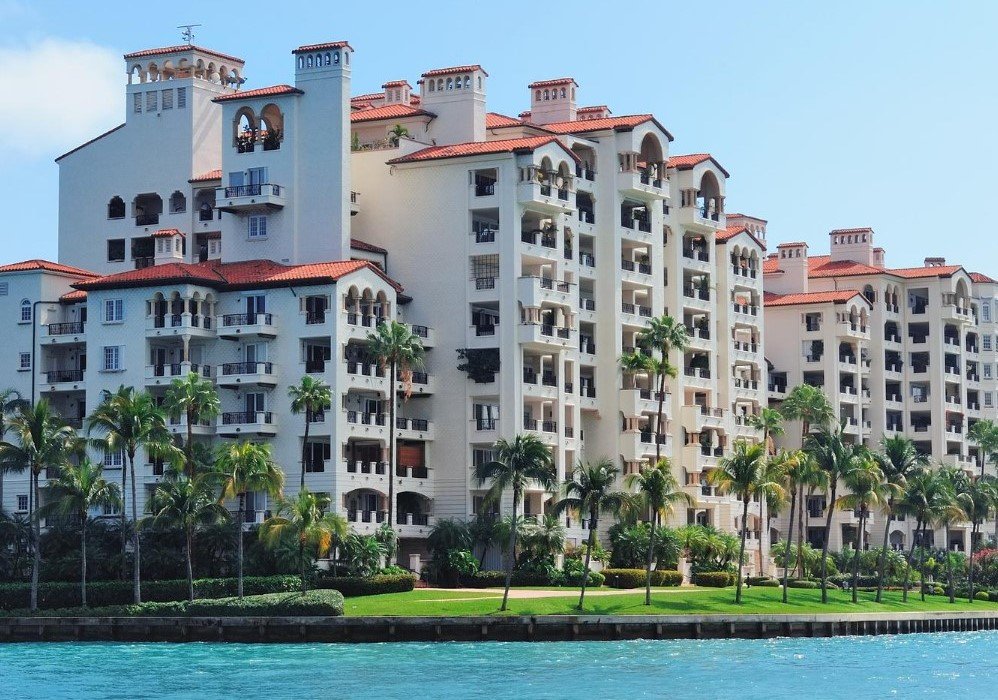
Extra Credit: Full Post on Purchasing
There’s a lot that goes into purchasing a home. I’ll go over the basics with you, but if you want to know even more about purchasing a home, I have a full post here that can help guide you on your journey. As your loan officer, you can ask me any questions that you have along the way, and a trusted real estate agent will also be happy to help.
Qualify for a Loan: Get that Approval!
The most important thing to do before house shopping is to see what you qualify for; the last thing that you want is to find a great home, only to find out that you don’t qualify for the payments. As a mortgage broker, my job is to help you assess your budget, and get you set up with a mortgage loan that you can afford and are comfortable with. This blog is full of helpful information for you to use while buying a home and I am always a phone call away if you need any help, no matter where you are in the process.
Shop For Your Dream Home!
Find a Good Real Estate Agent: Once you have a pre-approval letter, you’ll be able to start house shopping! Florida is a very unique market compared to the rest of the United States, and I recommend that you find a trusted real estate agent. If you don’t know of anyone in the area, ask me! I’ve spent my career building relationships with trustworthy people who will treat you well, and that’s important because a real estate agent acts as your representative in a purchase; you need someone who has your best interests at heart.
Look for Houses: You can start looking at homes once you have a real estate agent. Your realtor should send you a daily, curated list of properties in the area that you’re looking at, but you can also go onto Zillow and find additional houses that you like.
Making the Offer: Your real estate agent will help you put in an offer once you finally find your dream home. Once the offer is made and the contract is accepted, you’ll go into loan underwriting, and upon approval, you’ll close on the home! Now you’re part of the Florida fam!
Setting the Foundation for Your Florida Move
Moving to Florida is a significant decision, but with the right steps and trusted partners, it becomes a thrilling journey to your new home in the Sunshine State. Whether you’re securing the best mortgage or seeking the perfect neighborhood, every move is one step closer to your Florida dream.
Step 3: Packing and Moving
This is where it starts to get real! Packing up your things can be an exciting and overwhelming experience. Here’s some tips that I learned when I moved to Florida.
Start With A Plan: Initiate your moving process well in advance. The sooner you start, the smoother your transition will be. Early preparation gives you ample time to declutter, carefully pack, and correctly label each box.
Decluttering: It’s Really Neat!: Really consider what you need to bring while packing your things. Shipping can be expensive and moving tons of frivolous items yourself can be exhausting. The best advice is to try the Marie Kondo approach: if the item sparks joy, then keep it. If you’re not sure, it’s probably best to part with it. Also, keep in mind how easy something might be to buy once you’ve arrived in Florida; you’ll want to bring family keepsakes, but a spare can opener should not make it on the truck (nor will you need a snow shovel).
Make A Moving Binder for Important Documents: Make a dedicated binder with all your important documents. I’ll elaborate more in step 4 but your first week of living in Florida will be busy, and you’ll need lots of important documents to finish your move. Also, you don’t want those documents just flying around in the back of the moving truck. Put the documents in an easy-to-access binder, and make sure they don’t leave your side.
Make an Essential “Move-In” Box: Your first night after moving will most likely be hectic. Packing an essentials box before you leave your old home will make this process significantly easier. You’re going to want to put all the essentials in this box; basic cooking items for dinner, utensils, a roll of toilet paper, soap, bedding, etc.
The Big Move: Making It Efficient
Professional Movers: If your home is brimming with items, or you’re pressed for time, consider hiring expert movers for a fuss-free move.
DIY Move: If you opt for a personal touch, source quotes from multiple moving truck or trailer companies to ensure you’re getting the best deal. Pack your car with essentials, including the box we made, making sure it’s manageable and not overloaded.
Expect the Unexpected: While we all love when things go as planned, moving day can sometimes throw a curveball. Mentally prep yourself for possible delays. Also, keep in mind the health of your vehicles; if they’ve only done commuting driving, a multi-day highway trip can be stressful on engines and fittings.
Unpacking: Setting Up Your New Life
As soon as you arrive, prioritize unpacking. Start with essentials from your “move-in” box. Once the basics are set, take your time with the remaining items. And remember, there’s no harm in seeking assistance – moving is a monumental task!
Step 4: Establishing Your Official Residency
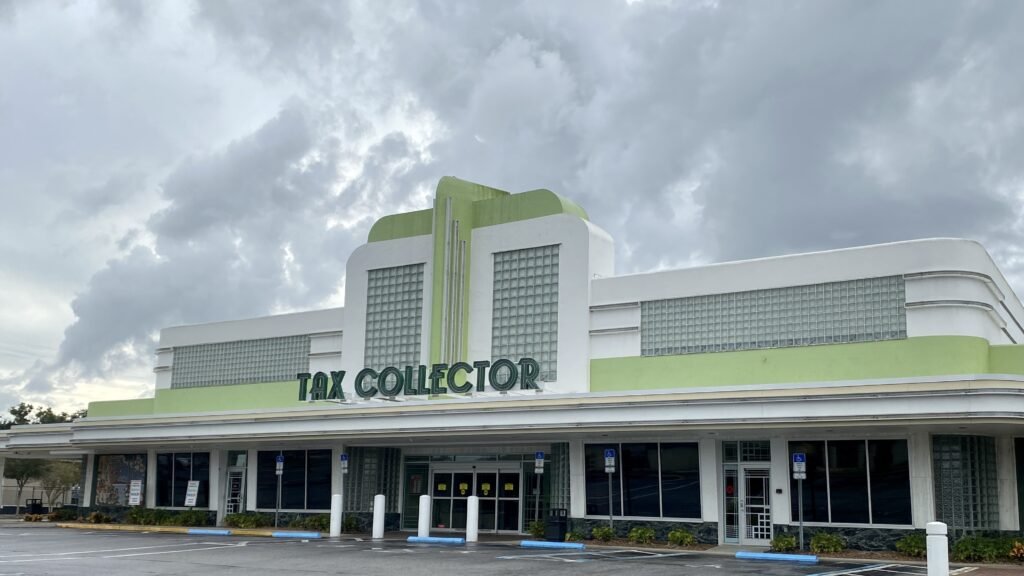
When you’re planting your roots in Florida, there are certain tasks you just can’t bypass. These not only help you assimilate with the Floridian community but also ensure that you’re in line with the state’s laws and regulations. I’ve split this section into halves: Mandatory and Optional. Keep in mind that this list is meant to be a guide; legal requirements change, and you should check with the various agencies and make sure that the information is correct.
Mandatory:
Government ID: Within 30 days of moving to Florida, you’ll need to update your Government ID. Most people just need to update their driver’s license at the local Tax Collector. Look up your local Tax Collector, and make sure they also do:
Vehicle Registration: If you own a vehicle, make it official by registering it. Florida requires vehicles to undergo a vehicle identification number (VIN) check, but emissions checks are not required.
Pet Registration: For the safety of your pet and the community, ensure that your furry friend is registered. Florida is a tropical place, which means that diseases can also thrive. Registering your pet helps local authorities combat disease and keep us all healthy. You’ll also want to find a vet and see what vaccinations and medications they might need to start now that you’re living in Florida.
Vehicle Insurance: Make sure that your insurance on your vehicle is updated; national carriers may or may not cover vehicles in Florida. With many people in Florida driving uninsured, you will want insurance, even if you know that you will not be the cause of a crash.
Health Insurance: Your health should always be a priority. Ensure you’re covered by researching Florida-specific health insurance providers or checking if your current provider operates within the state.
Familiarize Yourself With Florida Law: Every state has its quirks when it comes to laws. Whether it’s about property, personal rights, or community-specific rules, make an effort to get acquainted.
Optional:
Voter Registration: Exercise your civic duty! Register to vote in Florida and have a say in the local, state, and national decisions that affect you.
Florida Fishing & Hunting License: The state offers diverse wildlife and abundant fishing opportunities. If you’re a fan of either, obtaining a license lets you enjoy this facet of Florida legally.
Concealed Carry Permit: If you’re a gun owner who would like to concealed carry, you’ll need to get a permit. Ensure you meet the state’s criteria and understand the responsibilities that come with it.
Step 5: Adapt To Our Unique Climate
When I say climate, I’m really talking about two things: the actual weather, and the animals that the weather allows to live here. Our weather is very unique and it allows for a large variety of vibrant wildlife to live anywhere in the Sunshine State.
Work With Florida’s Weather Patterns
Florida has a wet season and a dry season, but both are warm to hot. A cold day is relatively unique around here. Here’s what you need to know to stay ready for our weather:
Be Prepared for Sun: Your best friends are breathable fabrics and sun protection. Clothing made of light fabrics, breathable shoes, and sun protection are what you’ll see in day-to-day life. Big sun hats and sunscreen are commonplace in every area in the state.
During the Wet Season: Florida’s wet season is officially from May 15th to October 15th, and during this time, you can expect rain nearly every single day! Seriously! It’s like clockwork; around 2-3 PM everyday, be prepared for about a half hour of pouring rain, immediately followed by sun. You’re going to want to carry an umbrella or rain jacket with you.
During the Dry Season: Florida’s winter is significantly drier than the rainy season, and an umbrella is usually an afterthought. Still, even with the cooler temperatures and lack of rain, it’s important to use sun protection, such as hats and sunscreen.
Befriending the Floridian Wildlife
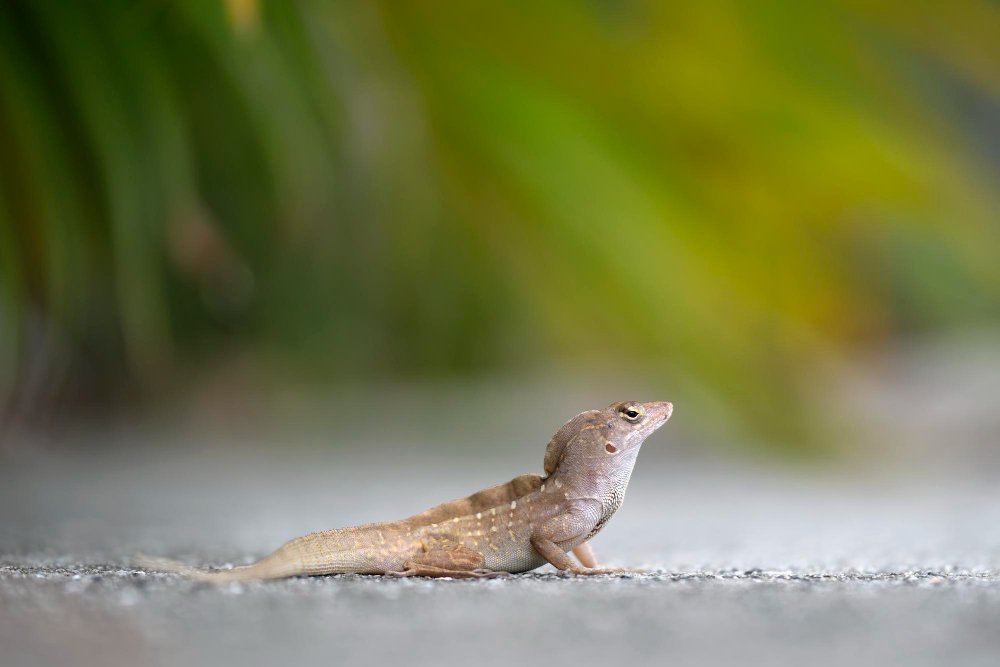
Florida’s rich biodiversity might be a shift from what you’re used to, but it’s a significant part of what makes the state so special. Here are some of the visitors that you can expect:
Lizards: One of the most commonly spotted animals in the state, you’ll regularly see these little guys crawling on your home, in your gardens, and on your lanai. Relatives of lizards, like Geckos and Anoles, are also frequent visitors. These small animals are very skiddish and will run and hide when they see you, but are overall very harmless to people and pets.
Spiders: Due to Florida’s warm climate, spiders can be found year-round. Expect to see many in your home and yard. Most of these spiders are small and friendly; try to spare them when you can because they help keep the mosquito population down. However, study up on some of the most common venomous species in your area, as you’ll want to be aware when these spiders move into your yard.
Snakes: Like spiders, snakes are common in Florida. Also like spiders, snakes are hugely beneficial for managing the local wild animal populations. Most snakes are small and skiddish, and while special care should be taken around snakes, they are for the most part harmless and reclusive. Like spiders, make sure you read up on venomous snakes in your area so you can identify them.
Alligators: Obviously we cannot make an article about Florida without mentioning alligators. They are an iconic part of Florida because they are everywhere! You can expect every single body of water to have at least one alligator in it, no matter how small. Like most animals on this list, as long as you keep in mind some best practices, you’ll be fine. Don’t approach alligators, and don’t allow small pets or children to play around ponds.
Manatees: Manatees are often called “Cows of the Sea”, and that’s for good reason. These docile creatures spend much of their time gently grazing shallow waters and just hanging out! You’ll often spot them in the canals of Florida. Be careful with the Manatees; while they do not pose any significant threat to humans, they are endangered and sensitive. Riding a Manatee can kill them pretty easily, so please observe these creatures with a respectful distance and be careful when boating, so they can continue to make our canals a better place.
Respecting the Inhabitants of Florida
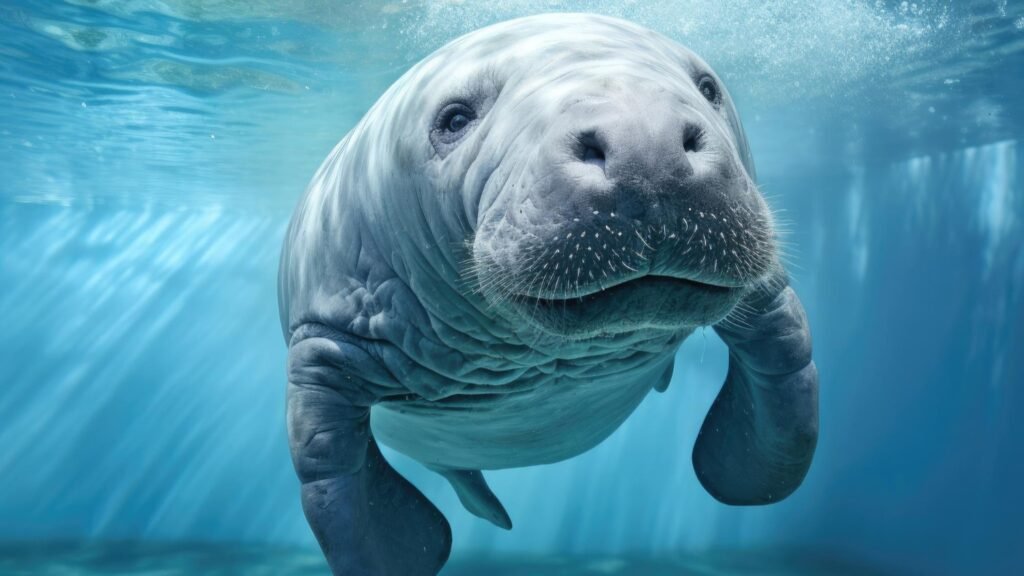
Remember, these animals were here before any of us. While some of them may seem scary at first, for the most part, the animals of Florida are harmless so long as you keep a healthy distance. Even the largest predators, alligators, are not really known for pursuing humans. Just don’t test your luck and get too close, and you should be just fine.
As you settle into Florida, embracing its environmental quirks will only enhance your experience. Soon, you’ll be navigating rain showers like a pro and delighting in the wildlife sightings that become a regular part of your day.
Step 6: Embrace the Lifestyle

Florida, a state teeming with celebrations, offers residents and visitors a wide array of festivals that embody its soul and spirit. Not only do these events provide a deep dive into Florida’s rich culture, but they also open avenues to create connections and friendships. While many of the major events happen in Miami, such as the International Boat and Yacht Show and Rolling Loud Miami, some of my favorite events are in other parts of the state. Check out some of my favorites:
Gasparilla Pirate Festival: Sail into the legendary world of José Gaspar, the fabled Spanish pirate. Once a year, the Gasparilla Parade will hold Tampa hostage and demand their surrender, as ships invade Tampa’s various canals and rivers. On land, the people of Tampa are assimilated into Pirate life, including hats and beads, as they accept their new lives as Pirates of the Gulf Coast! The Gasparilla Parade has been invading Tampa for over a century, and is a crowd hit!
The Conch Republic Festival: Key West’s Conch Republic Festival celebrates a whimsical declaration of sovereignty made in 1982, in protest to an inconvenient border patrol roadblock. While the “Conch Republic” lasted merely a week, its spirit is remembered yearly in this lively festival. Parades featuring vibrant floats, bands, and costumes fill the streets, alongside a conch shell blowing contest and a fair. My favorite part is the mock naval battle, playfully recalling the 1982 “standoff” between the Conch Republic and the US Coast Guard. It’s a lively testament to Key West’s unique culture and sense of humor.
Orlando International Auto Show: Automobile enthusiasts, rejoice! The Orlando International Auto Show is your portal to the future, exhibiting the latest innovations in automotive design and technology from all over the world. From luxury vehicles to the newest tech marvels, this show promises to rev up your passion for cars.
Discover the Natural Wonders of Florida
If festivals aren’t quite your thing, you’ll probably enjoy the plentiful natural experiences available in Florida. Many natural wonders are just minutes from local cities and towns, and even some huge metro areas!
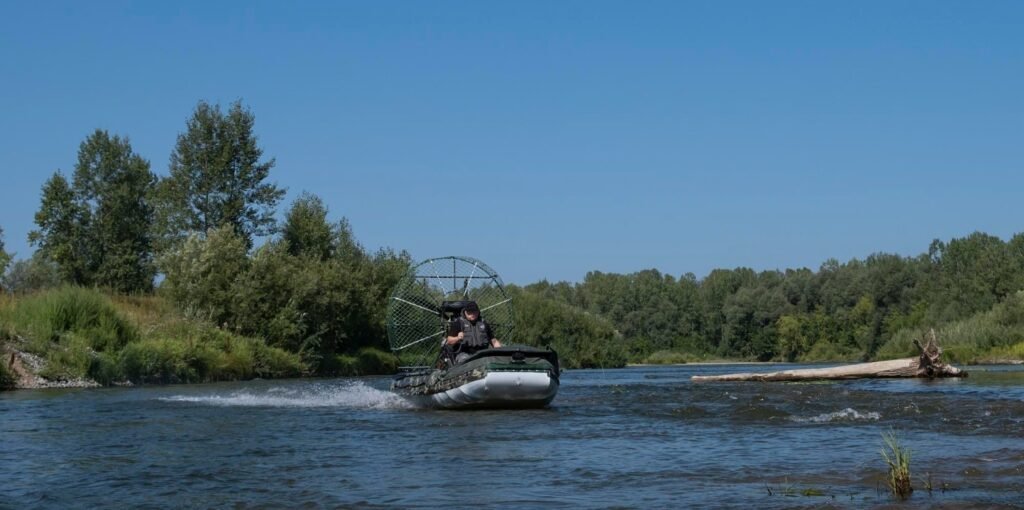
Everglades National Park: Venture into the wild heart of Florida at the Everglades National Park, located just under an hour away from the Miami Metro area. With an ecosystem unique in the world, it’s a haven for wildlife enthusiasts. Whether you’re hiking, biking, or taking a serene boat tour, the sights of alligators, crocodiles, and exotic birds in their natural habitat are unforgettable.
Weeki Wachee Springs: Touted as one of the state’s most unique destinations, the spring is famed for its mesmerizingly clear waters and its underwater theater, where audiences are treated to performances by the legendary Weeki Wachee Mermaids. These graceful performers execute balletic underwater routines, entrancing visitors as they dance amidst the springs’ bubbling vents. The allure of Weeki Wachee extends beyond its mermaids, however, with kayaking, paddleboarding, and riverboat cruises also drawing in those eager to immerse themselves in Florida’s natural beauty.
Santos Trails: Located in Ocala, just north of Orlando, the Santos trails feature over 80 miles of paths that are perfect for biking! The diverse trails allow a fantastic experience for anyone, no matter the skill level. While there are trails for everyone, the harder trails are well known for being some of the most enjoyable, technical, and challenging in the world.
Stay Connected with Online Groups
Florida, with a population of over 20 million people, has lots of online groups for all kinds of different people. Websites like Facebook or Meetup are a great way to get to know people in the area who share similar interests, and can help you find get-togethers of likeminded people. Only you know your interests best, but here’s two that I know of to get your mind going:
Miami Beach Happenings: A group dedicated to everything Miami! Ask about events, talk about living, and meet new people! This group of over 65 thousand does it all!
Orlando Foodie Forum: A private group that likes to talk about all the good eats in Orlando! You can share your favorite restaurants, feud with others over Brad’s Pizza, or just get recommendations.
Step 7: Staying Alert
Now that you’re set up and have established your new life as a Floridian, you have one final step: staying alert to the various conditions of Florida. While Florida is a small slice of paradise, there are a couple of things beyond hurricanes that you need to keep in mind.
Stay Hurricane Savvy: Florida hurricane season runs from June 1st through November 30th. You’ll want to to know the basics: check your emergency supplies, review your evacuation route, keep at least 1/2 tank of gas in your vehicle, and make sure you know which emergency shelter to go to (and remember to think of your pets). If you’re feeling unsure, look for a local workshop that you can attend; they are all over the state and typically free, and they’ll teach you all the basics of hurricane and natural disaster preparedness.
Stay Healthy: Florida is a tropical paradise and that means that tropical bugs also live here. Be aware of ticks, fleas, and other bugs. Above all else, be aware of mosquitos. Mosquito-borne illnesses are rare in the USA, however, Florida tends to have most of them. There have been past local transmissions of Dengue, Zika, and Malaria, to name a few. Make sure you’re aware of any public health warnings in your area, and use bug repellent with DEET to keep all the little nasties away. Also, make sure you don’t have any standing water nearby, as this is where many bugs go to breed.
Stay Aware at the Beach: Florida is known for it’s coastline; being a peninsula, we have a lot of it! Our beaches are commonly referred to as some of the best in the world! While everyone loves a day at the beach, there are certain things to keep in mind. Sea Turtle Nesting Season runs from March through October in Southwest Florida so for area so please don’t disturb the areas that are marked off with their nests. Please fill in any holes that you dig on the beach so the new turtles don’t fall into them while making their way to the water. Educate yourself on sand dollars and starfish (and other sea life but these are the two I hear about most). Live sand dollars have a coating of furry spines on them and are often dark in color. A starfish could suffocate if you remove it from the water so it’s best to not touch them. Additionally, keep in mind that the ocean can have rip tides. Swim parallel to the land if you’re caught up in one.
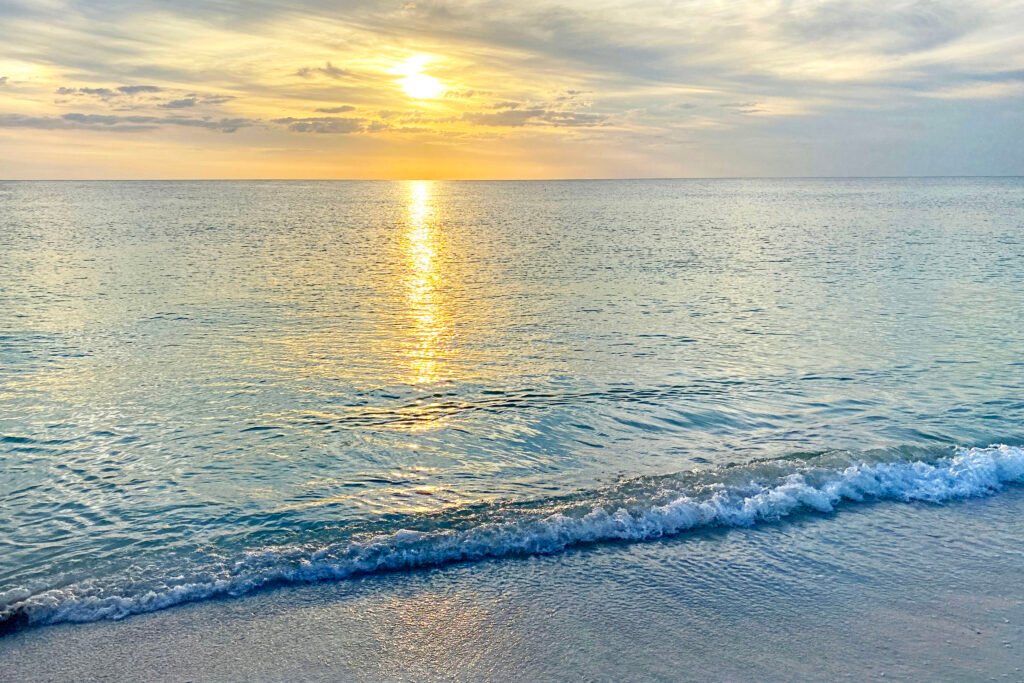
Florida, like any region, has its unique conditions to consider. Yet, with a blend of preparation and appreciation, you can enjoy all the wonders of this sunny paradise while staying safe and alert.
You’re Now A Floridian!
Embarking on the journey to relocate to Florida is as much an exploration of the state’s rich tapestry as it is an inner reflection of one’s priorities and aspirations. Florida’s allure isn’t just rooted in its sun-kissed beaches or its bustling cities, but in the stories that echo through its festivals, the ever-changing dance of its environment, and the pulse of its local communities. From the practical steps of establishing oneself—like securing a driver’s license or connecting with local online groups—to understanding and respecting the state’s unique natural conditions, preparedness is key. Every aspect of the move, from decluttering your past space to embracing the vibrant Floridian festivities, is an invitation to weave yourself into Florida’s diverse cultural fabric.
Moving to the Sunshine State is about embracing change, while cherishing memories of the past and building new ones for the future. Florida, with its vibrant blend of cultures, nature, and opportunities, welcomes you with open arms. Let the Sunshine State’s warmth envelop you, and may its bright horizons promise endless adventures in this new chapter of your life. Welcome to Florida!


Leave a Reply
You must be logged in to post a comment.